OER Champions 2024-2025 School Year
Averie Basch
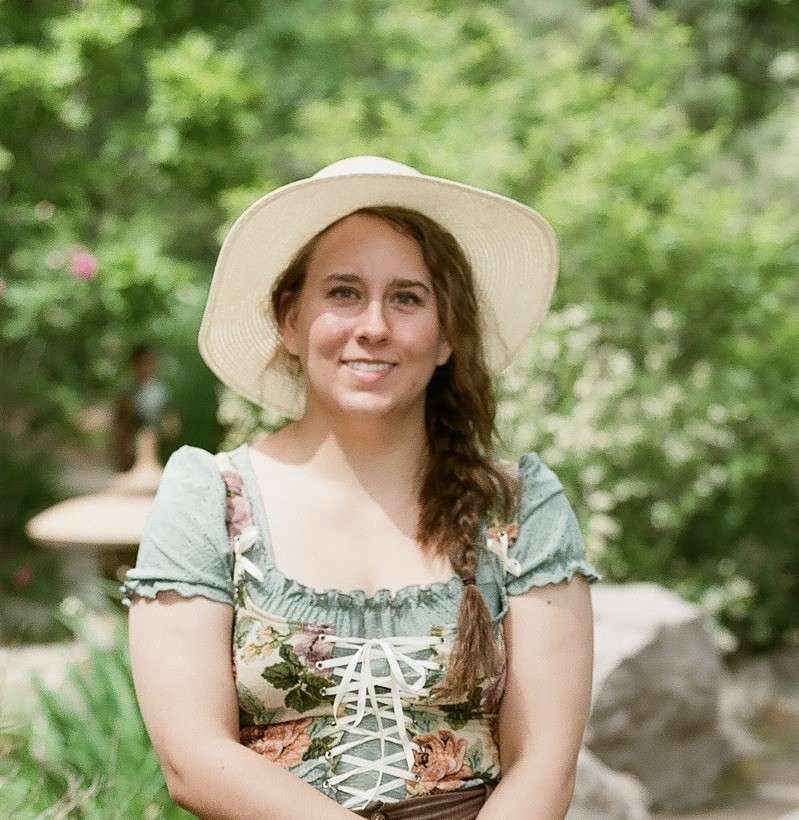
Research Graduate Assistant; Second author of OER Book Early World Literature: A Restorative Justice Approach
Averie Basch is a second-year doctoral student at the University of New Mexico pursuing a degree in Medieval Studies. She focuses on Arthuriana, Celtic mythology, and Otherworlds. She takes great interest in the how Arthurian literature reveals interactions between the Christianized North Atlantic and the Celtic fringe and how the Pre-Christian traditions survived in converted communities through storytelling. Much of her work assesses how the liminal spaces portrayed through the literature reflect borderlands in geographic and cultural contexts.
Megan Barnes

CNM Writing Instructor and OER Developer
Megan has been teaching at CNM since 2008 and teaches composition classes and professional and business writing classes. She lives in Albuquerque with her dogs and is passionate about ungrading, pedagogies of care, and preparing students for the workforce.
Brisa del Bosque

PhD student and Instructor of Spanish
Brisa del Bosque is a first-year doctoral student in Hispanic Linguistics at the University of New Mexico in Albuquerque. She is a graduate of Tec de Monterrey (ITESM) in her hometown of Monterrey, Mexico. She studied British Literature at the University of Cambridge, England, and earned her Master's degree in Spanish at New Mexico State University. Brisa has worked as a trainer for bilingual teachers in Mexico and the United States. She is also the founder of several Spanish as a Heritage Language programs in Denver, Colorado, and she has developed bilingual curriculum K-12th. Brisa is an instructor and supervisor of SHL (Spanish as a Heritage Language) at UNM, where she has taught levels 1, 2, and 3 and is currently developing the online level 2 of SHL, as well as producing online resources for SHL. She has conducted research on pronunciation attitudes in Monterrey, Mexico; teaching practices in Spanish classes in the United States; teaching Spanish as a heritage language; and Spanish variation. Her passion is to promote the teaching and use of Spanish in the United States, so that the Spanish language is not lost in this country.
Kiernan Cantergiani
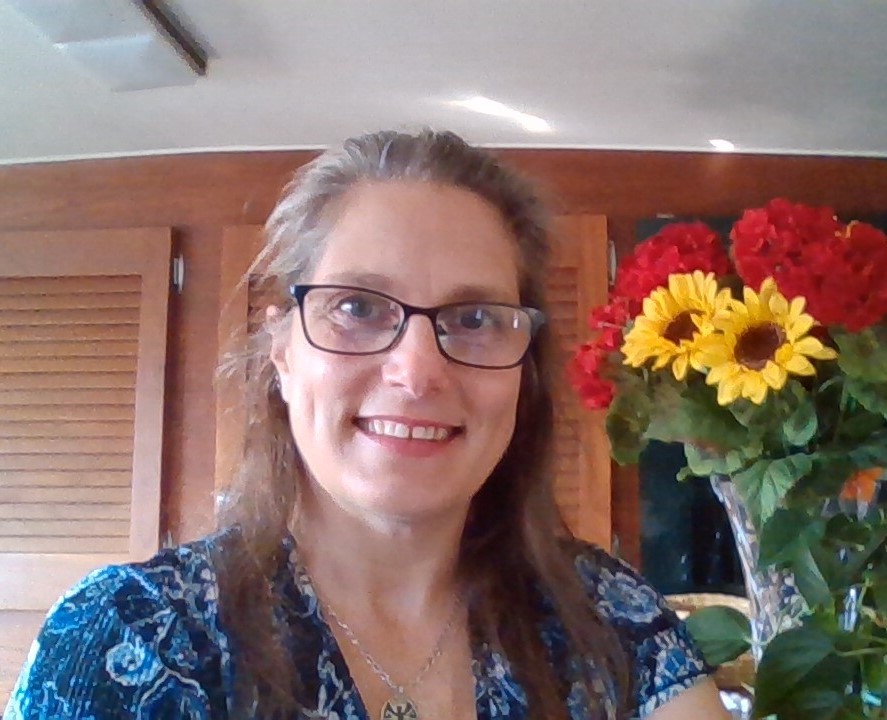
Kiernan Cantergiani is a veteran middle grades literacy teacher and support coach. With over 20 years of public school experience in three different states, and a master’s degree in instructional technology, she returned to UNM to earn a PhD in Language Literacy and Sociocultural studies. As the first graduate assistant on the NMOER Consortium grant, Ms. Cantergiani took every opportunity to learn about OER, but was especially interested in learning about creative commons, evaluating OER, and OER repositories. Additionally, she co-authored, with Grant PI, Jennifer Jordan, a primer for UNM faculty and staff about OER. Currently, she is deep diving into OER and Literacy education in a K12 setting.
Jennifer Jordan

Assistant Professor
Jennifer Jordan works as an Open Educational Resource (OER) Librarian in the College of University Libraries and Learning Sciences at the University of New Mexico. She is also the principal investigator on a federal open textbook pilot grant focused on growing the use of Open Education in New Mexico, an English teacher who developed OER curriculum with her peers at Central New Mexico Community College, and a creative writer who writes essays and poems.
Steve Martinez
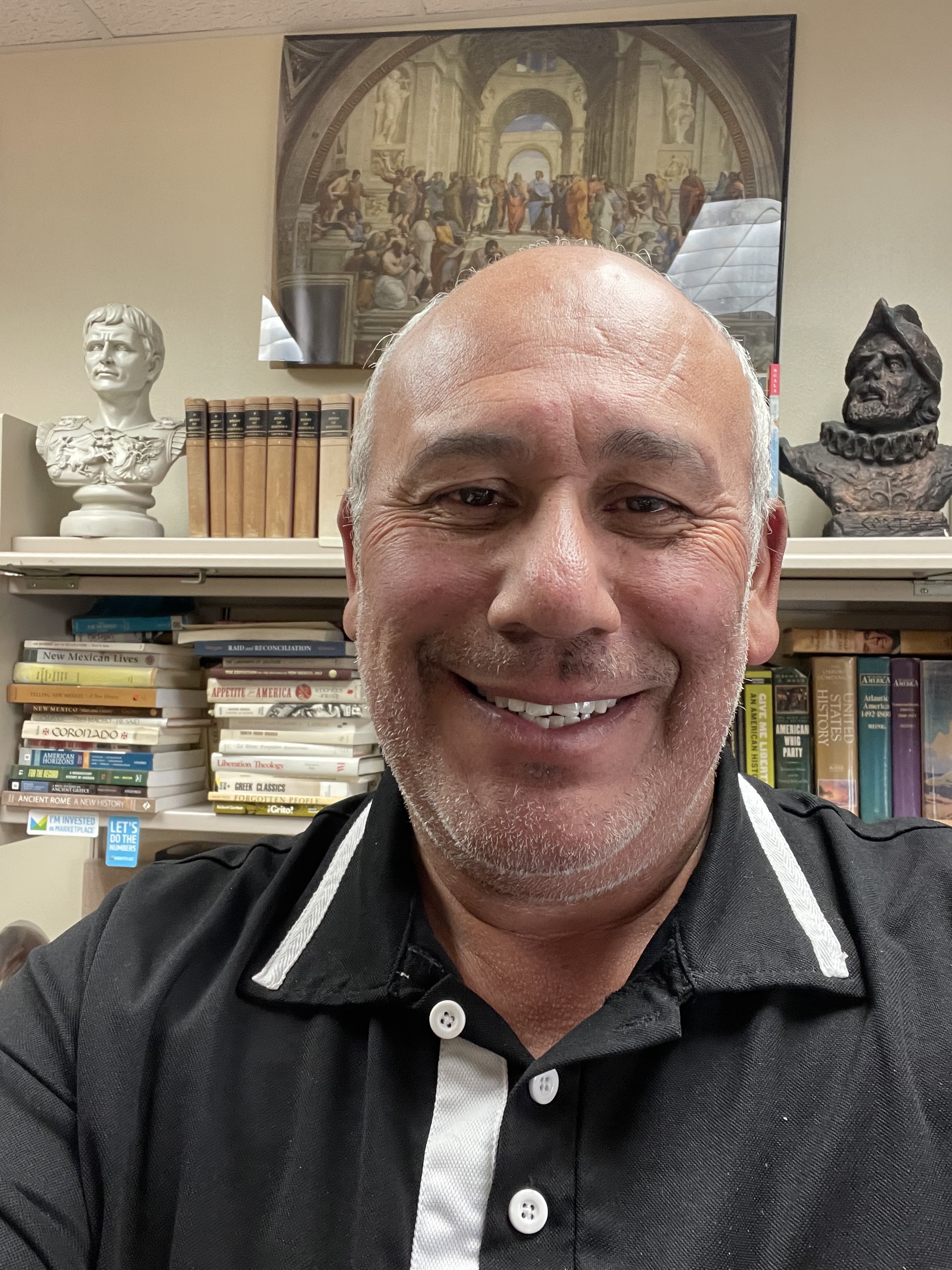
Assistant Professor
Stephen Martinez, Ph.D.
Dr. Martinez completed his undergraduate degree in History from the University of New Mexico in 1991.He was a public-school teacher at West Las Vegas Middle School for three years. He completed his Masters Degree in History from New Mexico Highlands University in 1997. In 2004, he completed his Ph.D. in American Studies, with a concentration in History, at the University of New Mexico. He is currently an Assistant History Professor at Santa Fe Community College, and an adjunct at Central New Mexico College. Steve is an advocate of OER is is working with H5p for his CNM class.
Dr. Brandon Morgan
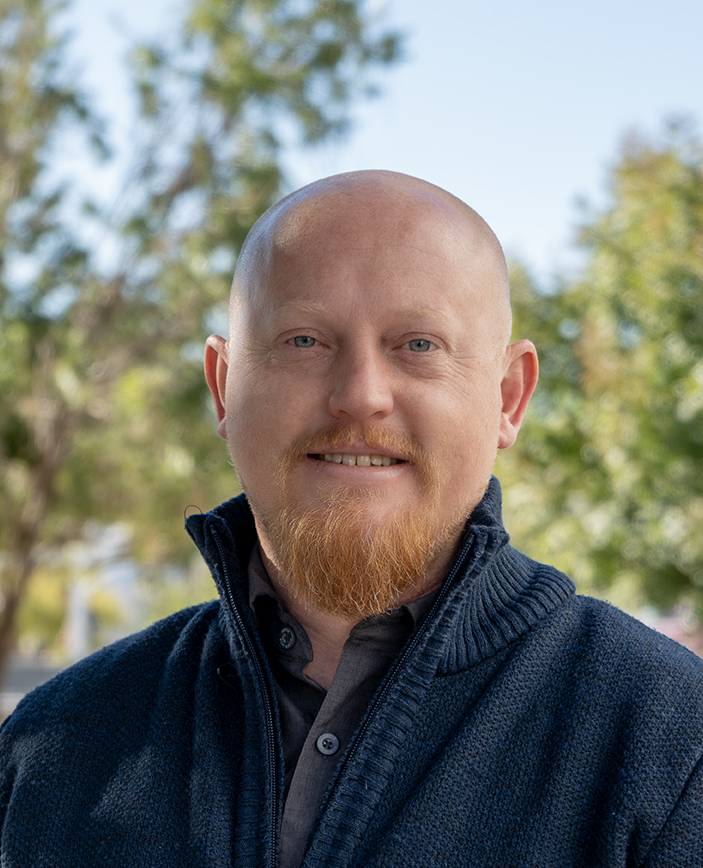
Dr. Brandon Morgan is Associate Dean for History, Latin American Studies, American Studies, Native American Studies, and Communication at Central New Mexico Community College (CNM), where he has taught since the fall of 2009. In 2013 and 2014, he developed CNM's digital textbook for New Mexico History, now offered as an OER for students across the state. Also, he published Raid and Reconciliation: Pancho Villa, Modernization, and Violence in the U.S.-Mexico Borderlands, with the University of Nebraska Press in August of 2024.
Nahir I. Otaño Gracia

Assistant Professor of English; First author of OER Book Early World Literature: A Restorative Justice Approach
Nahir Otaño Gracia is an Assistant Professor of English. Her theoretical frameworks include translation theory and practice, the global North Atlantic (Britain, Iberia, and Scandinavia), and critical identity studies. She has published a number of essays as well as the book The Other Faces of Arthur: Chivalric Whiteness in the Global North Atlantic with Penn Press (April 2025). Her co-edited volume of essays, Women’s Lives: Self-Representation, Reception, and Appropriation in the Middle Ages, was published in 2023.
Recently, Nahir has taught courses such as Intro to World Literature: On Hate and Restorative Justice and Medieval Romance and Race. Her courses tend to cluster canonical works of literature, transgressive literature by women of color, and materials from popular culture that students already know and welcome in order to help students decenter, dismantle, and recreate the canon.
Nahir is also an activist medievalist working to create a more inclusive medieval studies.
Mary Rice

Associate Professor of Literacy
Dr. Mary Rice is an Associate Professor of Literacy in the Department of Language Literacy and Sociocultural Studies at the University of New Mexico. Her research and teaching critique relational aspects of designing and doing digital learning. Recent honors include: Divergent Award for Research Excellence from the Initiative for Literacy in a Digital Age (2021); National Technology Leadership Initiative Award from the Society for Information Technology in Education (2023); Diversity Equity and Inclusion Publication Award from Innovations in Special Education Technology—Council for Exceptional Children (2024); Publication of the Year (Honorable Mention) from the Narrative Special Interest Group—American Educational Research Association (2024); and National Open and Distance Learning Award—K12 from the Open and Distance Learning Association of Australia (2025). Mary has served as Managing Editor of Online Learning, Special Editor of Distance Education and Professional Development in Education, and Editor-in-chief of the Journal of Online Learning Research.
Sue Ruth
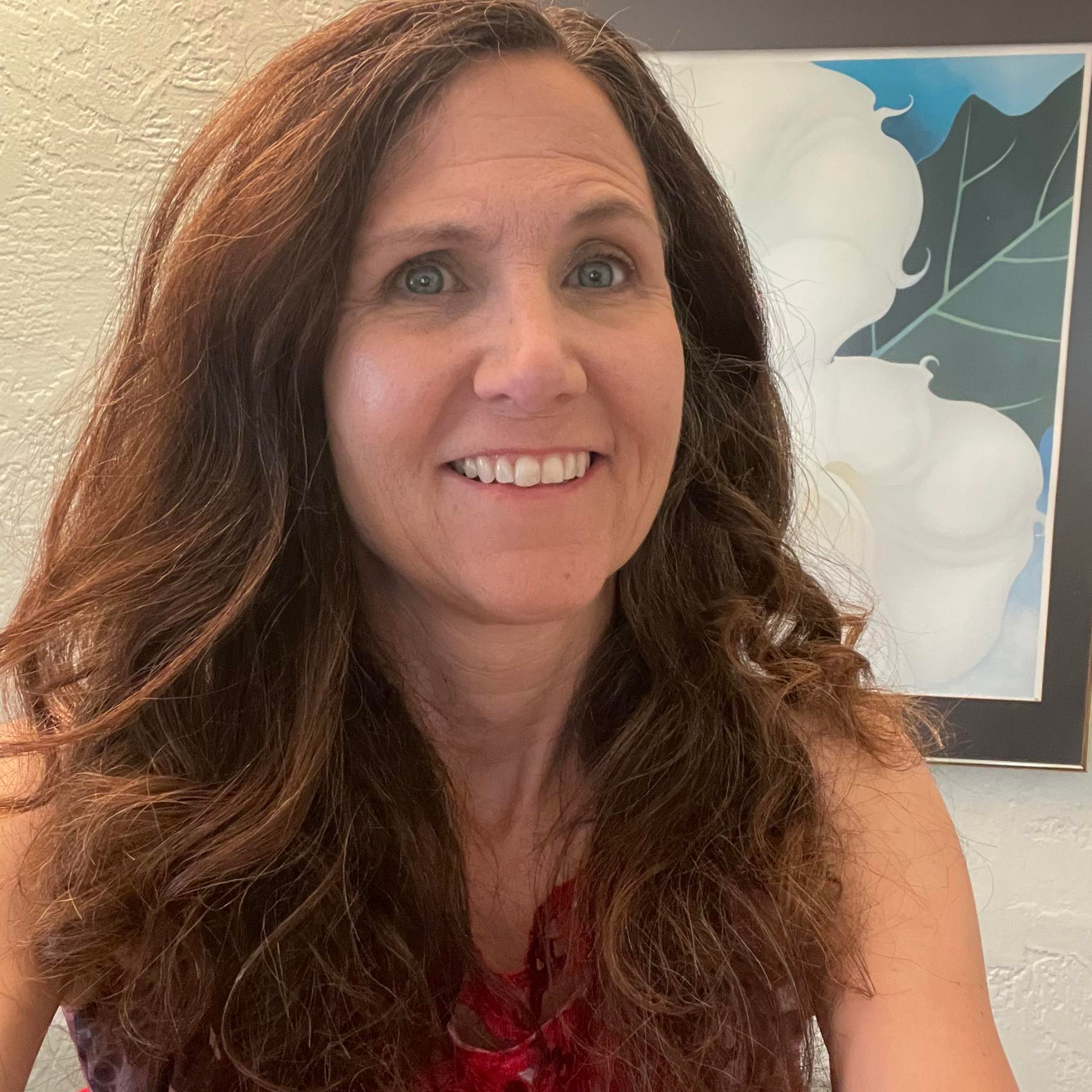
Instructor
Sue has been teaching anthropology at Central New Mexico Community College since 2007 and offers courses in general anthropology, linguistic anthropology, archaeology, and biological anthropology. She received her master’s degree from New Mexico State University in 1996 and her doctorate from UNM in 2013 in anthropology. She is dedicated to making education accessible and has written OERs for two anthropology courses. She is currently working on an interactive history timeline using H5P.
Stephanie Spong
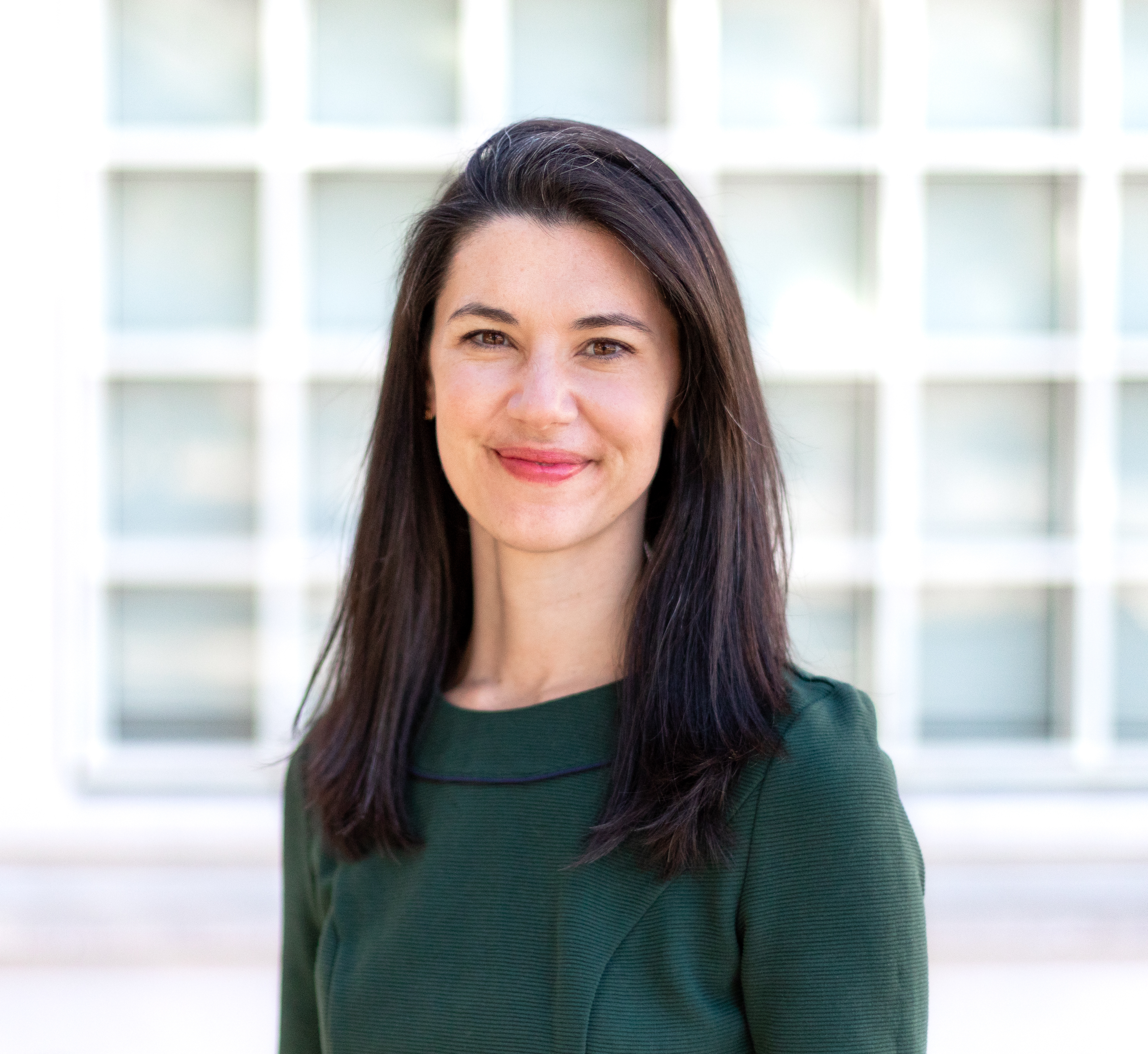
Stephanie Spong (she/her) leads the Teaching Support and Digital Learning teams at the Center for Teaching and Learning and is affiliated faculty in Organization, Information, and Learning Sciences at the University of New Mexico. She has co-authored Teaching Matters: A Guide for Graduate Students (2022) as well as publications in Computers and Composition, and the Journal of Computing in Higher Education, among others, and was a contributor to Quality Matters' "Bridge to Design Guide" with respect to culturally-responsive course design strategies.
Joaquín T. Argüello de Jesús

Joaquín T. Argüello de Jesús: Is a DominiXicanoRriqueño decolonial, antiracist, bilingual community, clinical, School Social Worker raised on the “Manito/a/x Trail;” board affiliations for the Arroyo Hondo Arriba Community Land Grant and Compostela Community & Family Cultural Institute; a PhD student in the Department of Language Literacy & Sociocultural Studies at the University of New Mexico; a graduate research assistant co-facilitating bilingual math (Algebra) learning through Indigenous Epistemologies: “wonderment”, relationality, materiality and Translanguaging corriente of 1st graders; Department of Sociology graduate research team focusing on the Census evolution of race and ethnicity federal guidelines; current research focuses on critical auto-ethnographic exploration of traditional community knowledge practices for “survivance” (transformative collective resistance via land/water heart knowledge) and self-empowerment and healing.
Dr. Damián Vergara Wilson

Professor
Damián Vergara Wilson is a professor in the Department of Spanish and Portuguese where he directs the Spanish as a Heritage Language program. His project involves contributions from multiple graduate students including Brisa del Bosque, Elizabeth Zavala, Jorge Hernández and María Domínguez in their project Heritage Spanish. While OERs are valuable for educators in all fields, they hold a particular importance in the teaching of Spanish as a Heritage Language (SHL). One of the main goals of teaching SHL is to provide a meaningful educational experience for students who come from communities where Spanish is historically part of the social fabric. Often, these communities experience intergenerational language loss as English becomes the main language. Language loss is frequently connected to larger societal forces that convey messages and ideologies that the heritage language is not worth preserving. Therefore, teaching SHL requires educators to confront these factors in helping students to understand their own sociolinguistic circumstances. One of the problems, however, is that commercially available textbooks often fail to address these sociolinguistic issues and frequently buttress negative attitudes that students might hold toward their heritage language. On one hand, this is a problem, but on the other, it invites educators to create materials that both teach the language and address these sociolinguistic issues. He hopes that his OER reaches these goals.
Tammy Wolf

CNM English Department Chair and Writing Instructor
Tammy has been teaching at CNM since 2009 and is the current Chair of the English Department. She teaches composition and technical writing classes. Her background with OER began in 2017 with the compilation of the first OER text used in the English department, and she subsequently compiled two more writing texts at use in our department. She is passionate about reducing faculty cognitive load and advocating for faculty at all levels.
Elizabeth Zavala
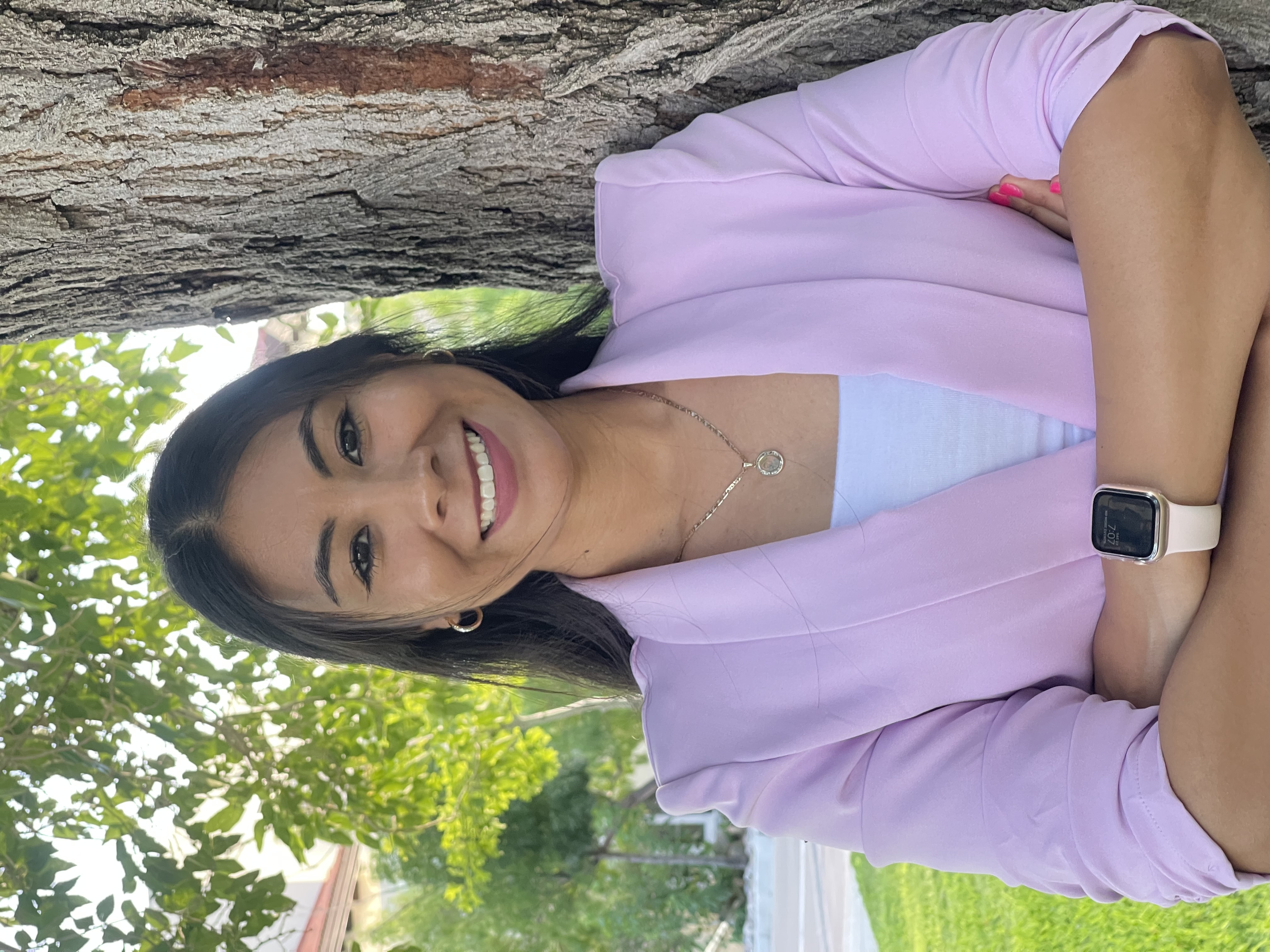
PhD student and Instructor of Spanish
Elizabeth A. Zavala was born in Bakersfield, California, but she grew up in a small village in Guanajuato Mexico. She received her bachelor’s degree in Spanish and her master's Degree in Hispanic linguistics at New Mexico State University (NMSU). She is currently a PhD student in Hispanic Linguistics at the University of Nuevo Mexico (UNM). She is the assistant coordinator for the Spanish as a Heritage Language program and as a teacher's assistant (TA). Her research interests focus on investigating the Spanish language changes in society. For her dissertation, she will investigate the linguistic and social changes of agricultural workers in Hatch, NM. She plans to give visibility to these people and their stories.
